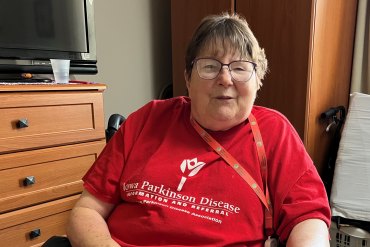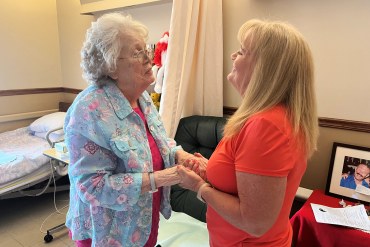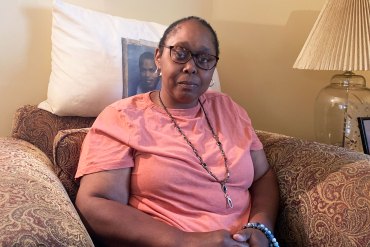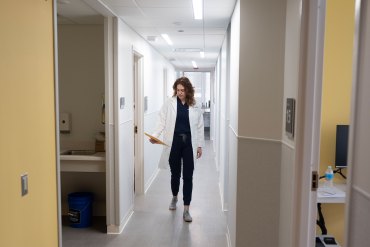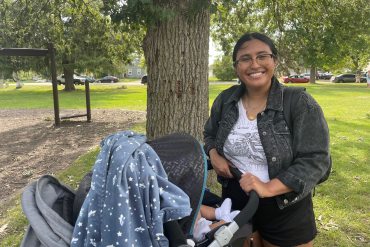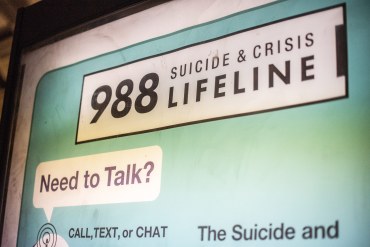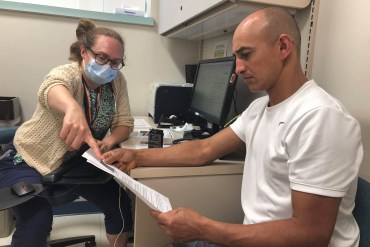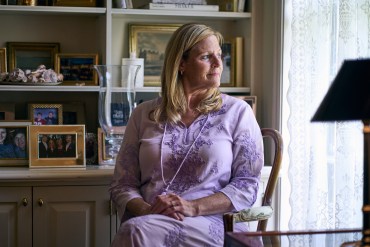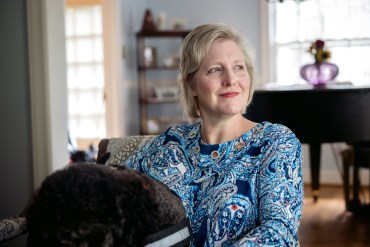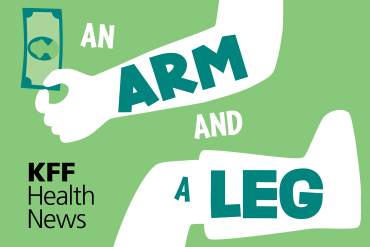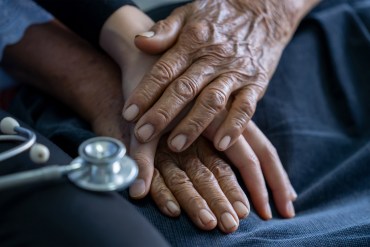As Covid Infections Rise, Nursing Homes Are Still Waiting for Vaccines
“People want covid-19 to be in the rearview mirror,” one nursing home official says. Faced with a slow rollout of the updated covid vaccines, and without state mandates for workers to get vaccinated, most skilled nursing facilities are relying on persuasion to boost vaccination rates among staff and residents.
Officials Agree: Use Settlement Funds to Curb Youth Addiction. But the ‘How’ Gets Hairy.
Parents, educators, and elected officials agree that investing in school-based prevention efforts could help curb the rising rate of youth drug overdoses. The well-known D.A.R.E. program is one likely choice, but its effectiveness is in question.
Rural Nursing Home Supporters Fear Proposed Staffing Standards Will Trigger More Closures
The Biden administration says a recently proposed minimum staffing standard would help ensure quality care, but nursing home leaders predict many rural facilities would struggle to meet it.
Social Security Overpays Billions to People, Many on Disability. Then It Demands the Money Back.
Beneficiaries in five states described what happened when they received letters calling on them to return overpayments that can reach tens of thousands of dollars or more.
As More Patients Email Doctors, Health Systems Start Charging Fees
Doctors say billing for email consultations reduces message volume and gives them more free time. The increasingly prevalent practice has also raised fears about negative impacts to patient care.
Abortion Bans Fuel a Rise in High-Risk Patients Heading to Illinois Hospitals
High-risk patients from states that heavily restrict abortion are coming to hospitals in states such as Illinois that protect abortion rights. The journey can mean more medical risks and higher bills.
Despite Successes, Addiction Treatment Programs for Families Struggle to Stay Open
Residential addiction treatment programs that allow parents to bring their children along have been recognized for their success. But a mix of logistical challenges and low reimbursement rates mean they struggle to stay afloat.
Most States Have Yet to Permanently Fund 988. Call Centers Want Certainty.
For rural Americans, who live in areas often short of mental health services and die by suicide at a far higher rate than urbanites, the federally mandated crisis phone line is one of the few options to connect with a crisis counselor.
‘Like a Russian Roulette’: US Military Firefighters Grapple With Unknowns of PFAS Exposure
Federal research linking “forever chemicals” to testicular cancer confirms what U.S. military personnel long suspected. But as they seek testing for PFAS exposure, many wonder what to do with the results. There’s no medical treatment yet.
Cozy Images of Plush Toys and Blankets Counter Messaging on Safe Infant Sleep
Unsafe sleep environments are among the main reasons accidental suffocation or strangulation is a hard-to-solve public health problem.
When Temps Rise, So Do Medical Risks. Should Doctors and Nurses Talk More About Heat?
The medical dangers of heat are real. But people often ignore public heat alerts or don’t realize how vulnerable they are. A new alert system prompts clinicians to talk about heat with patients.
She Paid Her Husband’s Hospital Bill. A Year After His Death, They Wanted More Money.
A widow encountered a perplexing reality in medical billing: Providers can come after patients to collect well after a bill has been paid.
Doctors and Patients Try to Shame Insurers Online to Reverse Prior Authorization Denials
Prior authorization is a common tool used by health insurers for many tests, procedures, and prescriptions. Frustrated by the process, patients and doctors have turned to social media to publicly shame insurance companies and elevate their denials for further review.
Funyuns and Flu Shots? Gas Station Company Ventures Into Urgent Care
A Tulsa-based gas station chain is using its knowledge of how to serve customers and locate shops in easy-to-find spots to enter the urgent care industry, which has doubled in size over the past decade. Experts question how the explosion of convenient clinics will affect care costs and wait times.
Feds Say Hospitals That Redistribute Medicaid Money Violate Law
Federal officials are trying to clamp down on private arrangements among some hospitals to pay themselves back for the Medicaid taxes they’ve paid. State health officials and the influential hospital industry argue that regulators have no jurisdiction over the agreements.
An Arm and a Leg: How a Surprise Bill Can Hitch a Ride to the Hospital
The No Surprises Act has helped rein in out-of-network medical bills, but ground ambulances are a costly exception. Hear why this service can still hit patients with big bills and what to do if you get one.
New Alzheimer’s Drug Raises Hopes — Along With Questions
Clinics serving Alzheimer’s patients are working out the details of who will get treated with the new drug Leqembi. It won’t be for everyone with memory-loss symptoms.
Voters Rejected an Anti-Abortion Measure. State GOP Lawmakers Passed a Similar Bill Anyway.
The new Montana law contains a couple of significant differences from the measure voters rebuffed last fall.
Lost Medicaid Health Coverage? Here’s What You Need to Know
Patient advocates are tackling the “overwhelming task” of connecting people with health insurance as millions lose coverage due to the end of pandemic protections on Medicaid eligibility.
Pioneering Study Links Testicular Cancer Among Military Personnel to ‘Forever Chemicals’
The military first documented health concerns surrounding chemicals known as PFAS decades ago yet has continued to use firefighting foam made with them. Despite scores of lawsuits by its personnel and high rates of testicular cancer among troops, it has been slow to investigate a connection.




